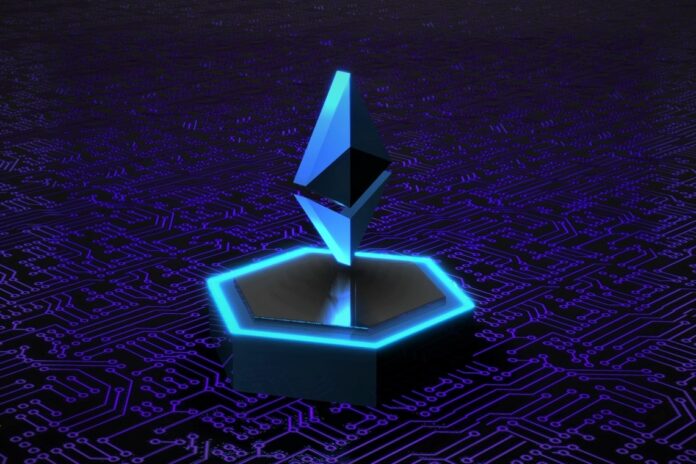Recently, the renowned co-founder of Ethereum, Vitalik Buterin, engaged in some forecasting regarding the future of the project.
In fact, Ethereum is not actually a cryptocurrency, but rather a crypto project. The actual cryptocurrency is Ether (ETH), although it is often mistakenly called Ethereum, and it serves as the native token on the blockchain itself, required to pay transaction fees.
Summary
The future of Ethereum according to Vitalik Buterin: here are his predictions
Vitalik Buterin is practically silent on hypothetical predictions about future ETH prices, whereas instead he often talks about the future of the Ethereum project.
This time he did so during the Permissionless conference in Austin, Texas, dedicated to DeFi, during an interview with David Hoffman.
Buterin’s prediction is of a future built on Ethereum, so much so that the co-founder explicitly urged participants to think about what is possible with crypto technology.
Indeed, Buterin does not want Ethereum to rest on its laurels, and instead to continue to develop innovative new ideas.
For example, he described DeFi (which he deems fantastic) and NFTs as an extension of something that already existed, and he believes that using cryptocurrencies for payments is a rather familiar action.
His desire would be for completely new innovations built on decentralized platforms that simply did not exist until a few years ago.
The decentralized social network
Although even decentralized social networks are merely an extension of something that already existed, Buterin said he was particularly interested in Farcaster, which is a decentralized protocol similar to Twitter, and built on OP’s core network, on which the Warpcast mobile app was built.
For some time now Vitalik has been less and less active on X (formerly Twitter), while he is much more active on Warpcast.
For example, it was on Warpcast that he announced that he had recovered his X account after the hack a few days ago.
A few weeks ago, on the other hand, he had expressed his desire for Warpcast to also integrate a feature for conducting polls, with an additional plugin that would not impact the architecture of the software.
During yesterday’s interview he said that this decentralized social network in the long-term future could connect to all the other things that have already been created within the Ethereum ecosystem and its second layers, such as OP and Polygon.
Decentralization
Of course, Buterin also insisted on decentralization.
According to the Ethereum co-founder, crypto solutions have the potential to be even more decentralized, privacy-friendly, and secure, using new alternative tools to old, centralized ones.
But at the same time he admits that there will still need to be several developments and improvements before we can really do something that can innovate broadly and deeply on the web.
He stated:
“The big dream here is to like, really create an independent open tech stack.”
The idea is to be able to compete with platforms like Google or X itself, but without having to rely on closed, centralized systems.
Vitalik Buterin’s predictions regarding the Ethereum project
His prediction is that there will be a gradual process that will bring new users into Web3, for instance by creating an Ethereum address, perhaps initially through familiar services such as Gmail, so as to give people the ability to finally be completely and exclusively owners of their own data and accounts, and then be ready to use more crypto approaches.
He said:
“Basically, give people the opportunity to slide down the decentralization ladder and then, at the end of it, really properly be in this totally independent stack that actually works together — all the different pieces inside it.”
This is a very long-term prediction, for which even a few years will not be enough.
It is worth adding, however, that as Ethereum evolves to try to expand to a level where it can compete with Big Tech, the latter are nonetheless also evolving in turn, in what promises to be a long-term competition in which those who are most innovative and pervasive are likely to win.




